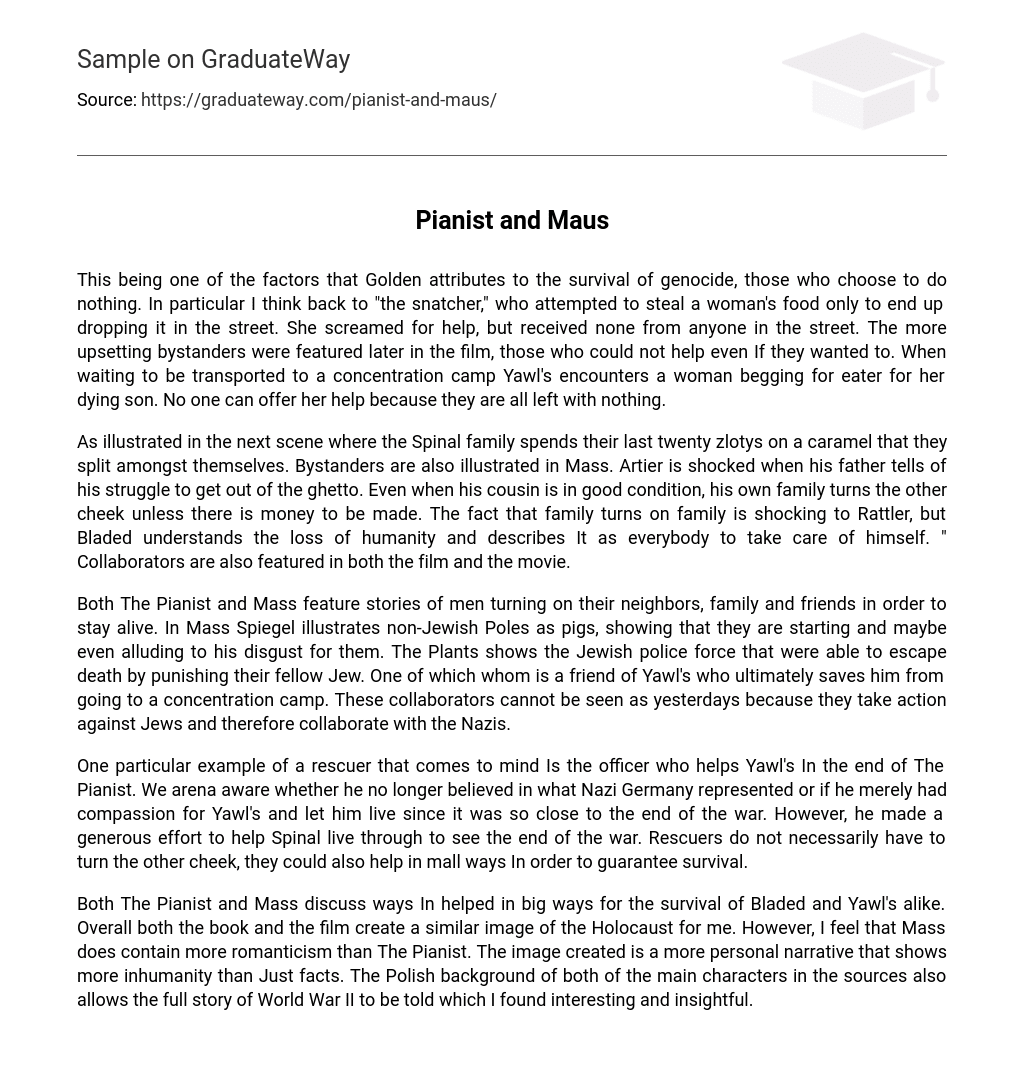This being one of the factors that Golden attributes to the survival of genocide, those who choose to do nothing. In particular I think back to “the snatcher,” who attempted to steal a woman’s food only to end up dropping it in the street. She screamed for help, but received none from anyone in the street. The more upsetting bystanders were featured later in the film, those who could not help even If they wanted to. When waiting to be transported to a concentration camp Yawl’s encounters a woman begging for eater for her dying son. No one can offer her help because they are all left with nothing.
As illustrated in the next scene where the Spinal family spends their last twenty zlotys on a caramel that they split amongst themselves. Bystanders are also illustrated in Mass. Artier is shocked when his father tells of his struggle to get out of the ghetto. Even when his cousin is in good condition, his own family turns the other cheek unless there is money to be made. The fact that family turns on family is shocking to Rattler, but Bladed understands the loss of humanity and describes It as everybody to take care of himself. ” Collaborators are also featured in both the film and the movie.
Both The Pianist and Mass feature stories of men turning on their neighbors, family and friends in order to stay alive. In Mass Spiegel illustrates non-Jewish Poles as pigs, showing that they are starting and maybe even alluding to his disgust for them. The Plants shows the Jewish police force that were able to escape death by punishing their fellow Jew. One of which whom is a friend of Yawl’s who ultimately saves him from going to a concentration camp. These collaborators cannot be seen as yesterdays because they take action against Jews and therefore collaborate with the Nazis.
One particular example of a rescuer that comes to mind Is the officer who helps Yawl’s In the end of The Pianist. We arena aware whether he no longer believed in what Nazi Germany represented or if he merely had compassion for Yawl’s and let him live since it was so close to the end of the war. However, he made a generous effort to help Spinal live through to see the end of the war. Rescuers do not necessarily have to turn the other cheek, they could also help in mall ways In order to guarantee survival.
Both The Pianist and Mass discuss ways In helped in big ways for the survival of Bladed and Yawl’s alike. Overall both the book and the film create a similar image of the Holocaust for me. However, I feel that Mass does contain more romanticism than The Pianist. The image created is a more personal narrative that shows more inhumanity than Just facts. The Polish background of both of the main characters in the sources also allows the full story of World War II to be told which I found interesting and insightful.





